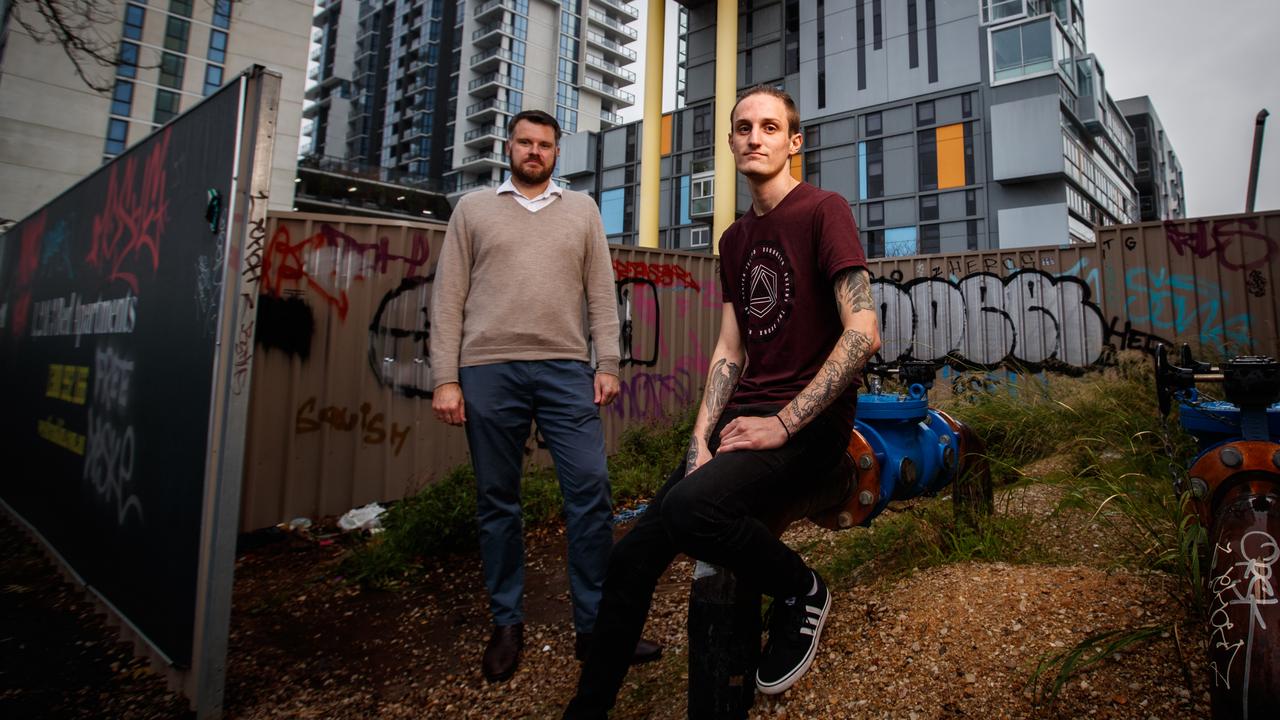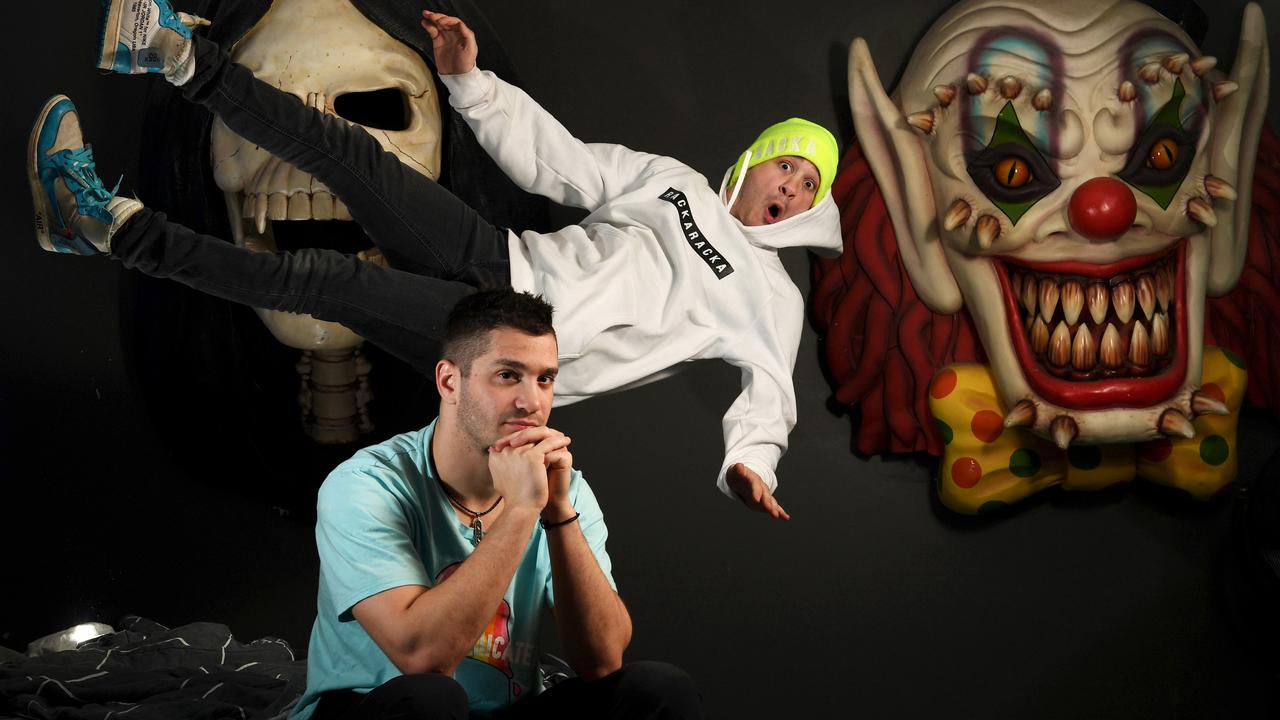Equal Opportunity Commissioner Niki Vincent on life, love and loss
Niki Vincent has experienced great success and deep despair in an extraordinarily eventful life — and she believes all that makes her better equipped to do her job as the state’s Equal Opportunity Commissioner.
SA Weekend
Don't miss out on the headlines from SA Weekend. Followed categories will be added to My News.
- Equal Opportunity Commissioner calls for more funding as office buckles under budget strain
- SA’s new Equal Opportunity Commissioner Dr Niki Vincent wants to make most of state’s talents
- Inquiry into MFS finds ‘boys club’ culture
- Damning report finds sexual harassment rife among SA Police
Niki Vincent has experienced great success and deep despair in an extraordinarily eventful life — and she believes all that makes her better equipped to do her job as the state’s Equal Opportunity Commissioner.
NIKI Vincent is always on the move. Often it’s between high-powered meetings, speaking events or even states. Today it’s uphill, hiking near her home in Waterfall Gully.
Earlier in the year she was on top of the world, ascending to the highest point of the Routeburn Track in New Zealand and paragliding over the adrenaline-junkie mecca of Queenstown.
But other times in her eventful life have brought a deep descent in the face of experiences that would fell many of us. For the 56-year-old, nature is her reprieve.
“I’m not a good meditator but I find that (hiking) is kind of my active meditation,” she tells SAWeekend.
“It provides me with the contemplation and the thinking space. It’s really important to me coming home to that kind of environment.”
It’s essential in the life of a woman who has barely a spare minute to herself, between multiple roles as head of the Equal Opportunity Commission, board member, public speaker, mother, grandmother and foster mother.
It is also grounding amid the soaring peaks and dark valleys of her incredible life. Before her 35th birthday, Vincent had migrated halfway across the world, survived a sexual assault, moved out of home and married as a teenager, birthed four children, started a university degree and then divorced.
In the following two decades she remarried, divorced again, wrote two books, finished a degree and PhD, nursed one of her children through treatment for a brain tumour and battled episodes of depression.
It’s a lot for one lifetime. But on the upside — where Vincent prefers to dwell — it has prepared her to help others in her current role advocating for people experiencing discrimination.
“In so many ways I’m grateful for the life experiences because they have given me so much greater insight and compassion for this work, and the people we’re dealing with,” she says.
“It’s not hard for me to reach back into my past for those sorts of people and the challenges they face … growing up in Elizabeth and Salisbury, moving out of home really early, being a teenage mum, having a kid with a brain tumour who I had to wheel around in a wheelchair for a couple of years.
“And because I’ve done so many different things I’m absolutely confident in my capacity to do whatever comes next so I don’t have a fear of stepping out and speaking out in this role. If that means that I stick my neck out and make a few people unhappy, I’m absolutely happy to do that.”
That is exactly what Vincent has done, hitting the headlines earlier this year to argue for a funding reprieve for her team at the Equal Opportunity Commission which she says is struggling to do a bigger job with half the budget it had a decade ago.
She’s seeking a boost in the upcoming State Budget to keep up with the influx of complaints about sexual harassment, disability discrimination and other concerns brought by ordinary South Australians each year who don’t feel able to stand up to their bosses, potential employers, school principals or others in power.
Vincent’s affinity with those seen as outsiders no doubt has its roots in her own childhood.
Born in the UK, she boarded a plane at the age of 11, beside her parents and younger brother, David, and flew to the other side of the globe.
“There were all sorts of myths about (Australia) at the time (that) it was all dirt roads, kangaroos were hopping around everywhere. We also had colour TV in the UK and there was no colour TV here so it felt like it was going a bit back into the dark ages,” she recalls.
The family lobbed in Salisbury East and a young Niki was enrolled at Para Hills West Primary School.
“The adventure was really exciting but I think, after a while, I realised that I really wanted to be with my cousins (in the UK),” she says.
“We expected that they would follow us out here but no one ever did. So I was a bit alone during my teenage years.”
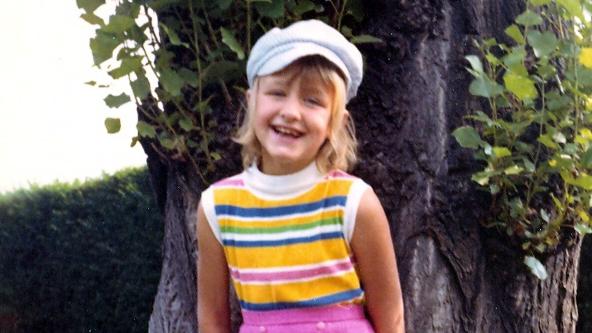
Almost a year to the day after she emigrated, Vincent experienced something that could derail a person’s life.
At the age of 12 she was sexually assaulted by the father of her best friend.
“I had to go to court, stand there in front of the perpetrator, tell my story … and then forget about it,” she says.
“There was no such thing as psychologists or counselling, that sort of thing. My parents did the absolute best they could (but) we would handle those things totally differently now.”
By the age of 15 a restless teenage Niki decided to leave home.
At first she moved in with the sister of her then-boyfriend and had a job working weekends at a cafe in the Adelaide Central Market.
“They made me wash the floors and all I wanted to do was make the cappuccinos,” she remembers with a wry smile.
“But one time I was sick of washing floors and I just went and made cappuccinos!” It’s indicative of an attitude that has persisted into adulthood. “I always push the boundaries if I don’t like the situation,” she admits.
As a determined teenager, she managed to continue her schooling at Salisbury East High School, albeit sporadically, to finish Year 12. She did return home once but soon left again for a sharehouse.
“I think I thought I was ready (to move out) but I really wasn’t,” Vincent concedes when she thinks back on that time.
“I was absolutely resolute that I was going to be OK but I felt so frightened about it.”
This early upheaval was a big factor in what came next.
“I got married when I was 18,” she says.
“I think it influenced why I got married so early because I was kind of looking for a sense of security and stability in my life.”
That wasn’t the outcome though. Almost immediately she fell pregnant and Vincent’s first daughter, Kyla, was born at the end of the same year that she exchanged marriage vows.
“I don’t think we were being very careful,” she concedes. Over the next six years, she and her then-husband Nick had three more children — Tammi (who they call Mim), Anthony and Robert — each about two years apart.
The result of having children so early was that Vincent became a grandmother at the age of 39. These days nine children aged between one and 17 years old call her “nana”.
“I certainly didn’t feel ready to be a grandmother. At first I was like, ‘Don’t call me nana, not in public anyway’,” she laughs.
Vincent’s 20s were spent producing and juggling a brood of small children and running a family building company with her husband.
Any parent would think this enough to keep one busy, but not long after the birth of her youngest child, in 1987, Vincent was ready for the next challenge.
She enrolled in a psychology degree at the University of Adelaide. But her extra-curricular workload meant she didn’t really feel part of the uni crowd or have a sense of how well she was doing.
Then a series of events she rightly describes as a “major crisis” occurred.
“My husband said he was having a relationship with someone else and he was leaving me,” she says.
“Then the top storey of the house burned down, and I had a big car crash with my kids in the car. All this in a four-month period.”
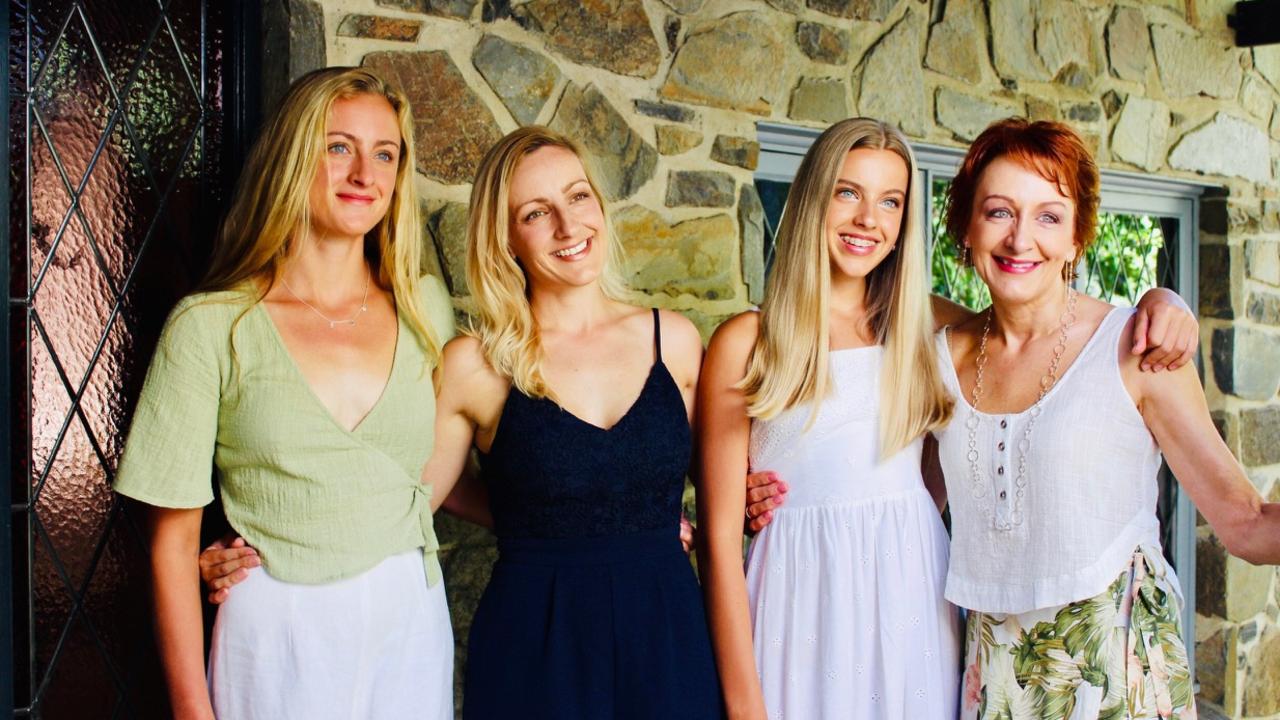
It was amid this chaos that Vincent received a letter that ended up changing her view on her life.
The University of Adelaide was to award her its first University Medal.
“I wasn’t even going to go to my graduation because I was a mess. I then had this really strong sense … I need to do something with my life,” she says.
The realisation was not without self-doubt. Vincent had to check with her honours supervisor that the medal wasn’t a mistake.
“I had that, what do they call it, impostor syndrome,” she says now. “He said it definitely wasn’t a mistake, you earned it. It gave me more confidence and made me sort of sit up and take notice of my life.”
After graduating as a trained psychologist, Vincent saw an advertisement for a role with the National Centre for Education and Training on Addiction — and made her first bold career move. While at a library applying for the job (it was the early 1990s) she was “apparently talking loudly” when she was approached by another woman who it turned out was interested in the same position.
Quickly the pair hatched a plan to pitch a job-sharing arrangement. One would work two days a week, the other three days. “It never occurred to us that that wasn’t what you did,” she laughs.
“We just thought this is a great solution for us. The boss was just one of these new age guys who said ‘Yeah, I can see how that could work’.”
Vincent worked in that role for about four years, where she also wrote a book about withdrawal from amphetamines, and she and her then co-worker remain close friends.

Eventually it was time to move on — and interstate.
Having split with her first husband in 1995, Vincent and her youngest son later moved to Sydney where she took up a role with the Australian Centre for Effective Healthcare.
There she wrote another book, about using research evidence to improve medical care, before itchy feet propelled her on to the then Institute for International Health, now known as the George Institute.
Work on a heart disease research project run across 36 countries offered the opportunity for frequent travel.
Having children early benefited Vincent as her kids were old enough to enable her to “travel a lot”.
By this stage she had an amicable relationship with her ex-husband — “after 18 months of hell” — and they shared time with their two youngest children who moved between Sydney and Adelaide around school holidays.
“I don’t hold grudges, not for people that I’ve been close to,” Vincent says.
In 2001 she met Simon, the man who would become her second husband, while still in Sydney.
The universe aligned and the pair both secured jobs in Adelaide around the same time and decided to move back. They married in 2003 but difficult times were ahead.
In 2005 Vincent’s parents separated. The next year she began a PhD but was forced to postpone that work when her eldest daughter, Kyla, was diagnosed with a brain tumour in April 2007.
Over the next two years Kyla had four surgeries.
“She was 24 at the time. It was pretty scary. She became pretty incapacitated for a while,” Vincent remembers. “It was probably one of the hardest things I’ve ever faced in my life.”

Thinking back, she believes she suffered depression for the first time when she and her first husband split in the mid-1990s.
At the time she “didn’t really recognise it” for what it was though.
Despite a testing period in the first decade of the 2000s she didn’t fall to those depths again until after the breakdown of her second marriage in 2015.
The same year her stepmother, her father’s second wife, died of mesothelioma.
“My ex-husband and I had a pretty difficult divorce actually,” Vincent says. “Work was also very challenging, there was a lot going on. I have experienced really bad depression where I couldn’t get out of bed in the morning.”
Eventually, Kyla (who Vincent describes as the only introvert in the family) confronted her mother.
“She said, ‘Mum, normally your enthusiasm and energy really pisses me off but now I want it back!’,” Vincent laughs.
“I went to the doctor and he said, ‘Of course you’ve got depression. Do you see what’s going on in your life?’.”
She began taking medication and it worked.
Depression is not a constant state for Vincent — there’s always “a reason for it”, she says. Most of the time she just wants to get on with life.
“I think I’m really good at kind of dealing with trouble and then just kind of putting it aside,” she says.
“That’s served me really well … but I think there are some downsides of that as well. It’s important to say that because people think you’re so resilient but I think we have to own periods of time where we weren’t coping that well.”

By the time her second marriage ended, Vincent’s house was quiet with her grown children out living their adult lives.
So she decided to fulfil a long-held desire to take in a child who needed a safe space.
“I felt very strongly that I’d always wanted to do fostering but I didn’t feel I had the time to do it full-time,” she says.
At this point, Vincent had joined the board of an organisation called Time for Kids which recruits volunteer mentors and respite carers for children from struggling families.
Seeing the desperate need in her new role, Vincent felt a responsibility to do more.
“I wanted to have a child from the northern suburbs because that’s where I grew up,” she says.
“I also specifically said I wanted a teenager … because we had this big waiting list and it just made my heart bleed to see these kids that we couldn’t place. People really want younger kids.”
So, in 2016, Vincent began spending time with a young African girl from a large family living in the northern suburbs.
“She lives in a very tiny house with a lot of people. She shares a bedroom with four other kids.”
What began as a half-day commitment once a month is now a fortnightly weekend sleepover. “For her it provides her with sleep catch up … and just the chance to be a teenager. We go to the movies, out to dinner. She hadn’t ever eaten in a restaurant before. She didn’t know how to use cutlery apart from a spoon, or read a menu. Now she eats with chopsticks and … she’s been really adventurous.”
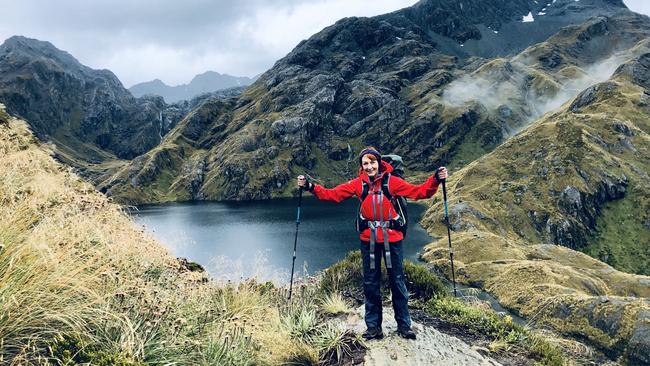
Vincent’s diet took a bit of getting used to though.
She began eating as a vegetarian in the mid-1990s but is now a pescetarian, meaning she eats fish but no other meat.
She made the change for animal cruelty and environmental reasons.
Her daughter Kyla followed suit and her granddaughter Poppy went further, becoming a vegan who eats no animal products at all.
Never one to rest on her laurels, around the same time Vincent became a foster carer she applied for a career change too.
Having worked all her life in the private sector she decided to throw her hat in the ring for her first public sector job after seeing an advertisement for the role of SA’s Equal Opportunity Commissioner.
“I always thought it would be a very challenging place to work,” she says of the public service. “I was keen on this job because it is a statutory role, with a level of independence from government.”
Bringing a wide network of contacts from former roles, including her time as CEO of the Leader’s Institute of SA in the mid-2000s, has also proved invaluable — although novel for some.
“Sometimes you can just pick up the phone and solve problems with that network,” Vincent says.
“They didn’t appreciate it at first (in the public service). They’d often say, ‘Where is she? Out having a coffee or meeting with somebody?’ but now they’ll often say, ‘Oh gosh, that really gets things done’. Sometimes it was seen as me going over people’s heads. Outside of government you use those networks but it upsets people in government because they like you to go through all the hierarchies.”

At the commission Vincent has pioneered work uncovering sexism in the state’s police and firefighting forces.
At the end of 2016 she delivered a damning report which revealed a “boys’ club culture” of accepted sexual harassment, discrimination and predatory behaviour within SA Police.
A third of the workforce said they had been sexually harassed and 45 per cent felt they had been discriminated against on the basis of their gender.
Vincent’s office made a raft of recommendations for improvement and is tracking the progress of the SA Police response.
In March this year she delivered the results of a similar audit of SA’s Metropolitan Fire Service, which also found a male-dominated culture that exposed the few female staff in the organisation (just 2.8 per cent of the workforce) to sexism.
The MFS has so far resisted committing to the kind of changes pledged by SA Police — such as setting ambitious gender recruitment targets.
Vincent will be urging progress there too.
In the #MeToo era this work has been timely, and agenda-setting — but also necessary for professional survival.
In the face of a shrinking budget, Vincent has felt forced to expand the work of her office to these kinds of projects to bring revenue into the Equal Opportunity Commission through payments from agencies which want to create a more diverse workforce.
So far the State Government has said only that Vincent’s request for more funding will be considered as part of preparations for the 2019-20 State Budget, expected in June.
With issues like sexual harassment and disability discrimination topping the list of complaints by South Australians, making money shouldn’t be Vincent’s main concern.
In fact, for her PhD — which she finished in 2014 — Vincent examined how to develop managers, executives and directors who are “more conscious of the world, not just better at making money”.
“How do we develop leaders with a broader consciousness who understand the interconnections between the kind of decisions they make in their organisations and the impact those decisions will have on society?” she explains.
This month, she notches up three years as Equal Opportunity Commissioner, and still has a long to-do list.
On top of fielding an expected 500-plus inquiries from South Australians, the commission’s “outdated” IT system needs an overhaul and Vincent wants to broaden its community education program and contribute more recommendations on proposed laws or government policies.
But she’s also keenly aware of the risk of burnout and knows she’ll need to take a break.
“If you burn yourself out you’re not a good parent, not a good grandparent, not a good leader,” she says.
She won’t be sitting by a pool somewhere, though.
Instead Vincent has three hikes planned for the next 18 months, in Tasmania, Victoria and Queensland.
“I need to have an active holiday,” she says.
“Especially with camping and hiking, you’re fully immersed so you can’t think about work. Sometimes you don’t even have a phone signal!”



